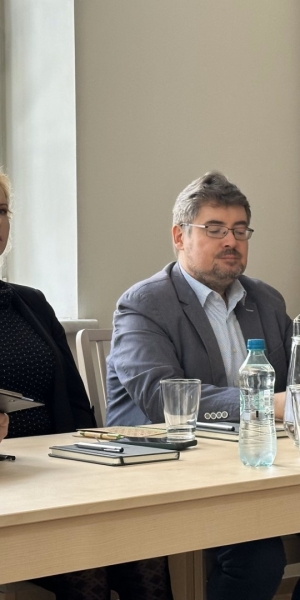IDM Short Insights 31: Prioritising the Climate during EU Membership Negotiations
Going into 2024, there are now 6 candidate countries negotiating the terms of EU membership: Albania, Moldova, Montenegro, North Macedonia, Serbia, and Ukraine. Following the recent climate conference COP28, there are also new agreements to transition away from fossil fuels, increase energy efficiency and use more renewable energy. Our colleague Rebecca Thorne explains what these climate deals have to do with the upcoming EU accession negotiations.
Transcript:
In December, the EU opened accession negotiations with Moldova and Ukraine. Together with Albania, Montenegro, North Macedonia and Serbia, there are now a total of 6 countries at this stage of EU accession.
In the same month, nearly 200 countries agreed to transition away from fossil fuels, while 118 countries committed to the Global Renewables and Energy Efficiency Pledge, which was launched by the president of the European Commission, Ursula von der Leyen.
These are not separate topics. As part of the negotiations, the candidate countries must agree on when and how they will adopt all the current EU rules, known as the “acquis”. Two thematic clusters are dedicated to the environment, with policy fields including transport, energy, the climate, and agriculture, each of which will be negotiated separately.
The response to Russia’s invasion of Ukraine and to the subsequent weaponisation of gas supplies has shown that extensive progress is possible in a short space of time, as the EU was able to rapidly diversify its energy supply, increase gas storage to 90% of capacity, and reduce its demand. According to statistics from the European Commission’s initiative REPowerEU, a huge 80% of Russian pipeline gas was replaced in less than 8 months.
The EU must continue on this trajectory and mobilise citizens, businesses, industries and governments in the candidate countries to support the green transition. There is, for example, already significant potential for renewable energy to be developed in the region, with currently 23 gigawatts of prospective capacity in these 6 countries, which would almost double the present operating capacity. This type of power generation is not only cleaner, but also cheaper, and would additionally help to reduce energy poverty.
The EU and its Member States have identified a greener society as one of the 2 key objectives of the decade, while the Green Deal sets out the ambition for Europe to be the first climate-neutral continent by 2050. These membership negotiations provide the Union with an opportunity to push its agenda on climate mitigation and adaptation, while also giving the candidate countries the chance to set a strong and sustainable precedent for their future in the EU.



